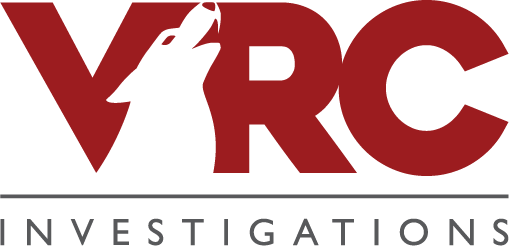VRC Investigators perform case investigations and infectious disease contact tracing nationwide to assist with compensability determinations, claim management, and inform on employee well-being.
Investigation of Workers’ Compensation and Occupational Disease Claims
Since March of 2020, 14 states have made changes to their law or policies in direct response to the COVID-19 virus. Typically, these changes amend state policy so that infected workers in select occupations (Ex. emergency response, hospital workers, etc.) are assumed to have been exposed on the job and are therefore covered by workers’ compensation. Right now, claim defense in these cases is challenging because each claim is being looked at on a case-by-case basis and through a different lens in each state.
Track legal changes happening in your state on the National Conference of State Legislatures (NCSL) website, they have a live map tracking state action here.
Most states require an employee to show that an injury occurred on the job and was a result of their employment before they can qualify for workers’ compensation benefits. In infectious disease cases, the exposure is not considered an injury; instead there is an investigation to determine if there is an occupational disease present.
Generally, the below two criteria must be met for compensability and workers’ compensation:
- The illness or exposure incident must arise out of and occur within the scope of employment.
- The illness must arise out of or be caused by conditions specific to the work which creates a higher risk or likelihood of contracting the illness than would be observed in the general public.
As infections continue their spread in the United States investigating the source of viral contact is becoming more difficult. It is important to fully understand the work the claimant was doing that led to an incident to pinpoint where an exposure took place. This is where bringing specialized resources to conduct an initial compensability investigation, including a contact tracing investigation, can make a difference in case outcomes.
What is Contact Tracing?
Contact tracing is a method that has been used historically by state and local health departments to identify and support people who have been exposed to infected persons. This process prevents further transmission of disease by separating people who have (or may have) an infectious disease from people who do not.
It is advised to move fast with contact tracing investigations to prevent further spread of the infection in your workforce and the greater public.
VRC Investigations takes traditional contact tracing methods and uses them to validate the cause of illness and uncover critical information for a compensability determination.
Specialists trained in contact tracing and claim investigation can support your case with:
- Interviews (virtual or in-person) of unrepresented claimants that include a timeline of locations/people the subject was in contact with inside and outside the work environment prior to developing symptoms.
- Explores medical history, recent medical treatment, episodes and testing.
- Includes lifestyle questions such as other jobs, activities, family exposure, and more.
- Interviews (virtual or in-person) of supervisor, co-workers and/or others (may include family members, neighbors, etc.) to obtain critical information about the subject and exposure incident.
- Work schedule review to identify who an infected individual may have come into contact with inside the work environment and validate timelines.
- Social media investigations into the subject and/or subject’s family members, before and during the incident/exposure time frame.
- Medical Canvassing to uncover medical records, including telemedicine and pharmacy records.
Information uncovered through interviews with the claimant and other affected parties can validate whether the employee was exposed to the virus while working and whether the exposure to the disease can be directly tied to their employment.
Preventative Measures
The best way to reduce infectious disease incidents during this time is to focus on employee health protections.
Read the Occupational Safety and Health Administration (OSHA) PDF “Guidance on Preparing Workplaces for COVID-19” to learn how you can create a low-risk environment for your employees.
Learn more about infectious disease investigations
Phone: 800-654-2185 option 7
Email: pr@vrcinvestigations.com




